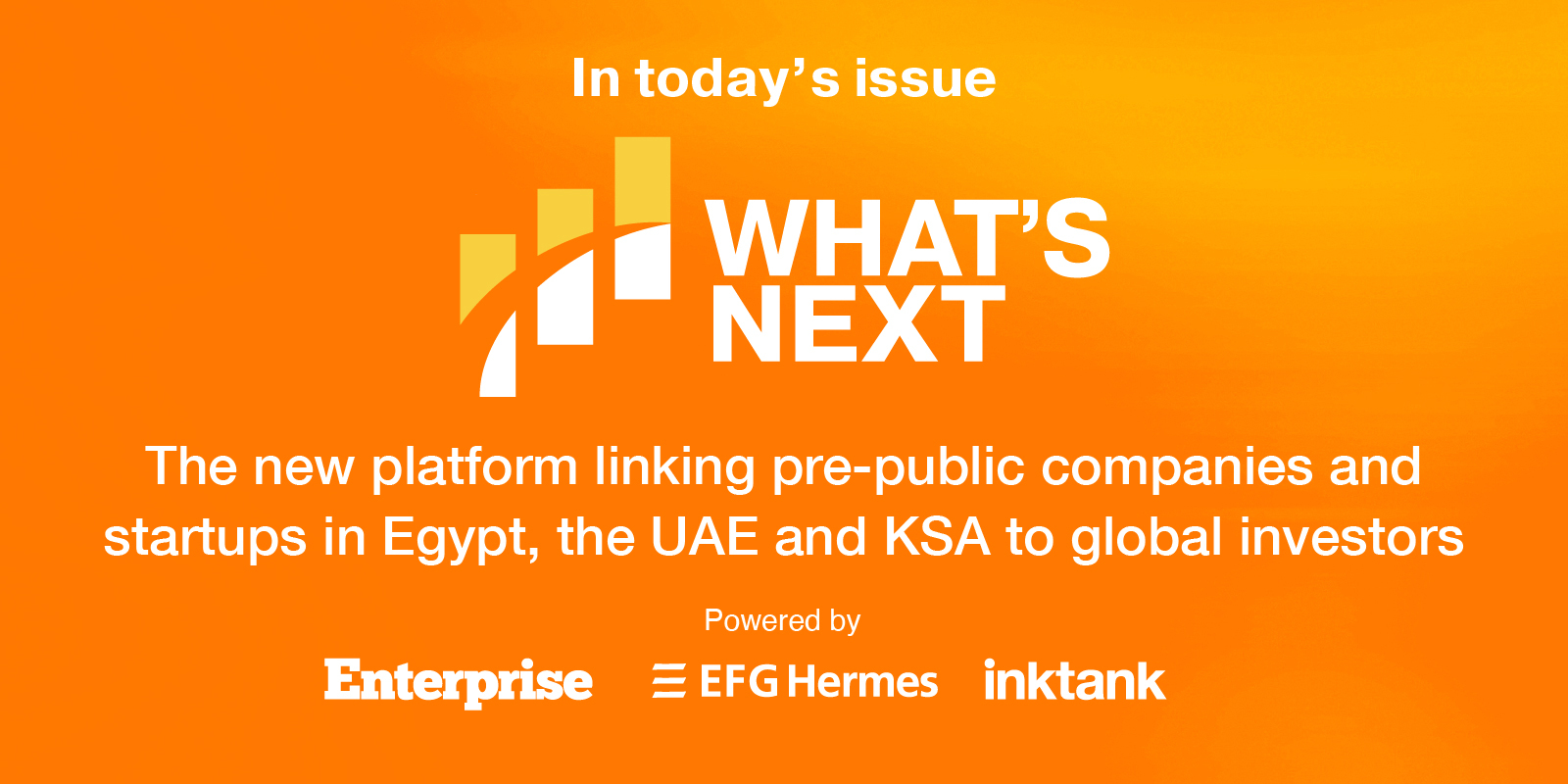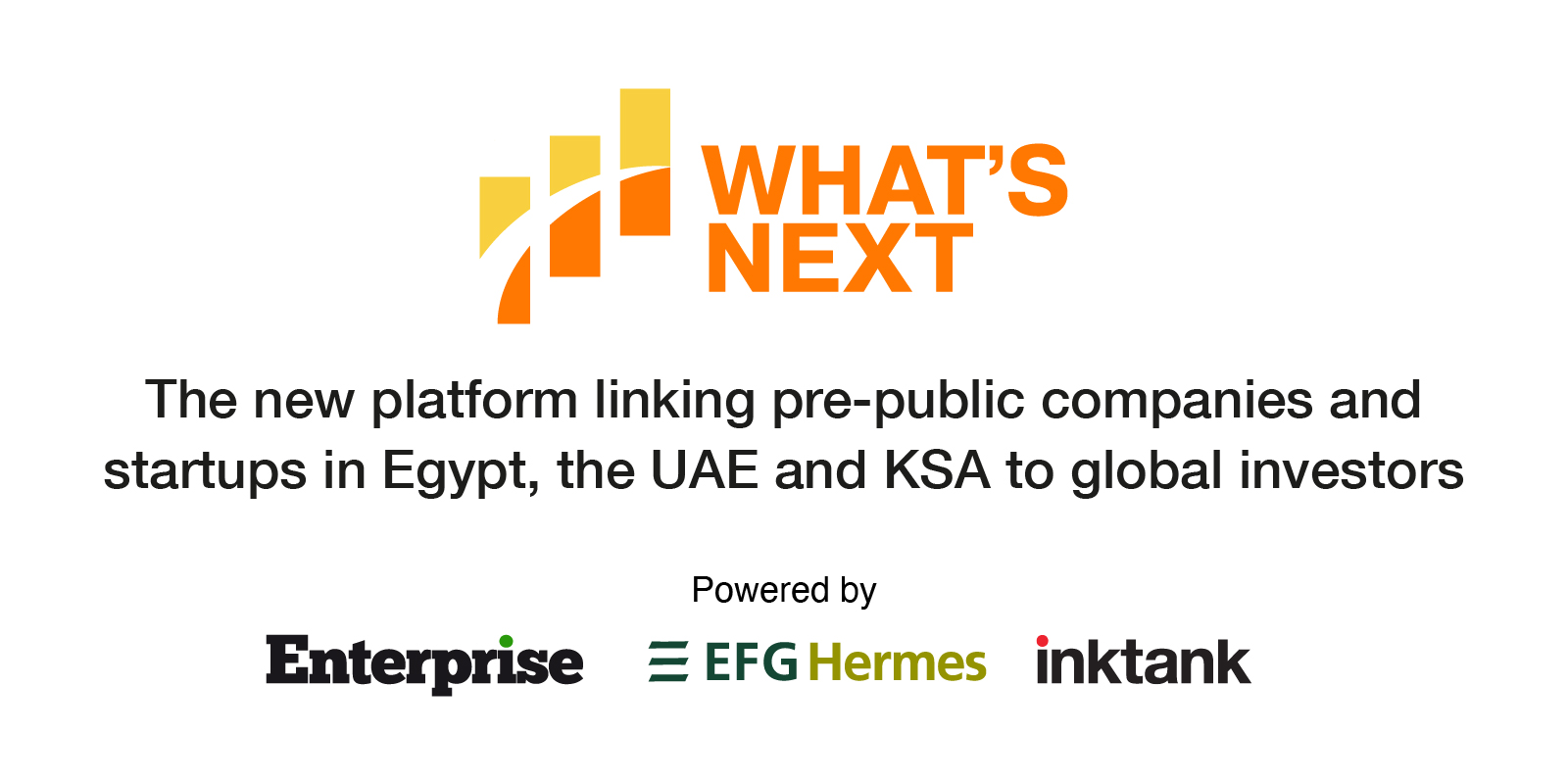- We’re finalizing some USD 3.5 bn in fresh financing from multilateral lenders to shore up food and energy security. (Commodities)
- Egypt, India explore wheat-for-fertilizer swap. (Commodities)
- Officials get bold on climate finance + developed nations’ missed pledges at pre-COP meet. (Enterprise on the Road)
- Will Infinity and Masdar snap up a majority stake in Lekela? (M&A Watch)
- The UAE’s Al Futtaim Group could invest as much as USD 1 bn more here by 2025. (Investment Watch)
- Etisalat Misr signs EGP 17 bn worth of infrastructure agreements with Telecom Egypt. (Telecoms)
- We’re building more hotels than any country in Africa –industry survey. (Tourism)
- What’s in store for Nigeria’s startup ecosystem — and how can Egyptian startups expand there? (What’s Next)
- Abu Dhabi petrochems giant Borouge soars in ADX debut. (Planet Finance)

Sunday, 5 June 2022
AM — Another USD 3.5 bn from multilateral lenders to help pay our wheat + energy bills
TL;DR
WHAT WE’RE TRACKING TODAY
Good morning, wonderful people. It’s all about commodities and climate as we start the first full workweek of June.
THE BIG STORY here at home: Egypt lined up a potential USD 3.5 bn in fresh financing at the Islamic Development Bank’s annual meeting in Sharm El Sheikh this past weekend. That includes USD 3 bn in additional funding for food and energy imports with the International Islamic Trade Finance Corporation (ITFC) and a potential USD 500 mn program with the World Bank to buy, store and grow more wheat.
The Madbouly government is also in talks with India on a potential wheat-for-fertilizer swap.
PLUS- The UAE investment train keeps on rolling this morning:
- Our friends at Infinity are reported to be working with the UAE’s Masdar to acquire Actis’ 60% stake in renewables player Lekela;
- Al Futtaim Group could invest another USD 1 bn here through 2025 and is looking to bring more of its foreign partners to invest in Egypt, the group’s CEO says.
The commodity and financing news came out of Sharm El Sheikh, where we attended the Islamic Development Bank’s (IsDB) annual meetings this weekend. “COP Lite,” as we’ve taken to thinking of the gathering, brought together a who’s who of Egyptian and global leaders including CEOs of multinationals, ministers from IsDB member countries, policymakers, NGOs, and startup founders. The meeting featured a strong showing from top Egyptian officials, where the driving narrative foreshadows their agenda for this fall’s COP27: How to turn the policy direction of COP26 from empty platitudes to real implementation.
The meetings also gave policymakers a chance to have frank discussions. And we mean it when we say frank: Hard and uncomfortable truths were said and acknowledged in panel discussions — we have a recap below, at the end of this morning’s news well.
ON A RELATED NOTE- The bank has a new HQ in Omm El Donia: The IsDB officially launched its new regional headquarters in Cairo, with bank President Muhammad Al Jasser saying in a statement (pdf) that the move was part of its “keenness to reinforce cooperation and coordination with development partners, as well as to establish strong partnerships with private sector [institutions].”
We’d like to thank Planning Minister Hala El Said — who played host to the meetings — and her team for inviting us to be flies on the wall during the discussions, which left us feeling that these meetings are a harbinger of what’s to come in COP27.
PSA- We have a warm week in store: The Egyptian Meteorological Authority (EMA) is warning of an “extremely hot” week ahead, with highs in the capital of 35-37°C, through Friday. Our favorite weather app, meanwhile, is predicting that the mercury could tip as high as 42°C by the end of the workweek.
WHAT’S HAPPENING TODAY-
It’s PMI day: Purchasing managers’ index figures for Egypt and Saudi Arabia will be released this morning at 06:15 CLT. Egypt’s non-oil private sector contracted for the 17th consecutive month in April as rising inflation hit demand and output.
Capmas’ monthly bulletin covering the price of key building materials is also due out today.
Expect healthcare to be in the headlines over the coming days: Africa Health ExCon starts today and runs through to Tuesday, 7 June, at Al Manara International Conference Center, Egypt International Exhibitions Center, and the St. Regis Almasa Hotel in the new administrative capital.
|
CIRCLE YOUR CALENDAR-
IN THE HOUSE THIS WEEK- Industrial investment, tackling pollution + mud tax. The House of Representatives is holding plenary sessions today through at least Tuesday. On the docket:
- Trade and Industry Minister Nevine Gamea will today answer MPs' questions on government plans boost investment in industry, improve the business environment for manufacturers, and localize certain sectors including the automobile industry .
- Environment Minister Yasmine Fouad is in the House on Monday to talk tackling pollution in our waterways, beaches, and natural reserves.
- Mud tax talks: Tuesday will see discussion of reports on potentially extending the suspension of a 14% tax on agricultural land for an additional year to July 2023.
ALSO THIS MONTH- Gas agreement with the EU this month? Egypt and Israel will sign an agreement with the EU this month to increase LNG exports as the bloc scrambles to find new suppliers and unwind its dependence on Russian gas, according to a draft document seen by Bloomberg. The two countries are expected to come to an agreement when European Commission President Ursula von der Leyen visits Egypt this month, the business newswire said. Bloomberg reported last month that the plan would see Israel increase natural gas exports to Egypt’s LNG facilities, from which the gas would be shipped to Europe.
One problem: Lack of capacity. With only two liquefaction plants, Egypt doesn’t currently have the requisite capacity to supply Europe with the volumes of gas that it needs. Oil Minister Tarek El Molla said recently that it might be another two or three years until Egypt is able to increase its exports across the Mediterranean.
The Madbouly government is well aware: New LNG terminals and pipelines are in the government’s infrastructure plans as it looks to position itself as a critical gas supplier to Europe in the coming years.
NOT HAPPENING THIS MONTH- Our maiden sovereign sukuk issuance. Egypt has pushed the issuance of its sovereign sukuk to FY 2022-2023, Finance Minister Mohamed Maait told Ahram Online. With the executive regulations of the Sovereign Sukuk Act not yet published and market conditions still see-sawing over Russia’s invasion of Ukraine, Maait’s confirmation that our first sovereign sukuk issuance will not be taking place by the end of this fiscal year as was hoped should come as no surprise.
NEWS TRIGGERS you’ll want to keep an eye on as the new month gets underway:
- Foreign reserves figures for May should be announced sometime this week;
- Inflation figures for May are due out on Saturday, 9 June (from state statistics agency Capmas) and Sunday, 12 June (central bank figures);
- The Central Bank of Egypt holds its policy meeting on Thursday, 23 June.
Technology conference Tech Invest 4 will take place on Tuesday, 7 June at the Grand Nile Hotel in Cairo.
NEXT MONTH- Follow-up on the Egypt-UAE-Jordan industrial partnership: Egypt, the UAE and Jordan will meet in Cairo in July to follow up on the industrial partnership agreed last week in Abu Dhabi, the Egyptian Trade Ministry said in a statement Friday. Bolstered by USD 10 bn in investment from ADQ, the initiative will look to support sustainable economic growth and increase industrial production by channeling finance into industrial projects in the three countries.
Check out our full calendar on the web for a comprehensive listing of upcoming news events, national holidays and news triggers.
THE BIG STORY ABROAD-
The global business press is still bemoaning the state of markets around the world as inflationary pressures mount on asset classes everywhere and the R-word is bandied about with increasing abandon (see: Bloomberg on how all equities traders care about now is macro and why easy money is dead.)
Welcome to the party, Elon: The Tesla boss has a “super bad feeling” about the economy — and told execs at the EV-maker they’d be laying off 10% of the workforce as a result — before apparently backtracking on the comments a day later, Reuters reports. While they try and figure out whether or not they could in fact be let go, Tesla employees are unlikely to be comforted by Musk’s recent analysis welcoming a recession since “it’s been raining money on fools for too long.”
And there’s bickering in the US over who exactly failed to predict decades-high inflation: US Treasury Secretary Janet Yellen is insisting that she didn’t forewarn Joe Biden that pumping USD bns of stimulus into the economy could help stoke price hikes, as a new book claims she did.
*** It’s What’s Next day: We have our weekly deep-dive into what makes and shapes pre-listed companies and startups in Egypt, the UAE and KSA, touching on investment trends, future sector insights and growth journeys.
In today’s issue: What’s next for Nigeria’s startup ecosystem — and how can Egyptian startups expand there? We continue to disseminate all the knowledge gleaned from our recent trip to Lagos and the discussions we were lucky enough to have with some of the brightest lights in Nigeria’s entrepreneurial scene. This week, we look at how the Nigerian startup scene will develop, what challenges companies face, and how Egyptian startups can expand into the country.
Miss Elite will be kicking off its second edition at Somabay from 3-11 June. The international beauty pageant helps contestants showcase and present their nation’s identity, beauty, culture, tradition and ethnicity.
For more information, visit: https://misseliteworld.com/
COMMODITIES
We’re closing in on USD 3.5 bn from the ITFC + World Bank to help with food and energy

Egypt is finalizing some USD 3.5 bn in fresh financing from multilateral lenders to shore up food and energy security amid ongoing disruptions to global markets.
First up: We’re getting that USD 3 bn from the ITFC. The International Islamic Trade Finance Corporation (ITFC) has raised the ceiling for its financing agreement with Egypt to USD 6 bn from USD 3 bn to help us meet our food and energy needs, according to a statement (pdf). International Cooperation Minister Rania Al Mashat and ITFC CEO Hani Sonbol inked the agreement over the weekend on the sidelines of the Islamic Development Bank’s 2022 annual meetings.
Meanwhile: We’re lining up some USD 500 mn from the World Bank under a food security programme (pdf) that is pending approval from the institution’s board. The bank would provide USD 380 mn to import up to 700k tons of wheat for the bread subsidy program, USD 117.5 mn to raise silo capacity, increase the use of high-yielding types of wheat, and improve climate resilience, and USD 2.5 mn to manage the project.
BACKGROUND: Egypt signed a USD 3 bn agreement with the ITFC in January 2018 to fund the purchase of basic goods and commodities, including petroleum, wheat, and other subsidized food staples. Since then, Egypt has taken out more loans from the corporation, including USD 1.5 bn earlier this year and USD 2.3 bn late last year, both to fund commodity imports.
The IFTC also wants to help us export, inking three agreements over the weekend to set up an export academy, organize trade missions to Africa, and boost SME exports to the rest of the continent. The news comes as Egypt aims increase exports to USD 100 bn a year by 2025 as part of the government’s bid to grow the private sector’s role in the economy. Priority areas include textiles, metals, and construction materials. Exports hit a record USD 32 bn in 2021, up from USD 25.4 bn the year before.
ALSO AT THE ISDB MEETING-
FAB Egypt inked a three-year agreement with IsDB’s private sector development arm to explore joint financing and investment in projects here.
The IsDB’s Islamic Corporation for the Ins. of Investment and Export Credit signed an MoU with Elsewedy Electric to accelerate climate action in the IsDB’s member countries, and an agreement with the Federation of Egyptian Industries to increase trade, investment and local training. (Statement, pdf)
SOUND SMART- This was the first time since 1991 that the IsDB has held its meetings in Egypt. The bank has helped finance some 367 projects in sectors including energy, education, health and industry over a five-decade-long relationship.
COMMODITIES
Food-for-fertilizer swap with India?
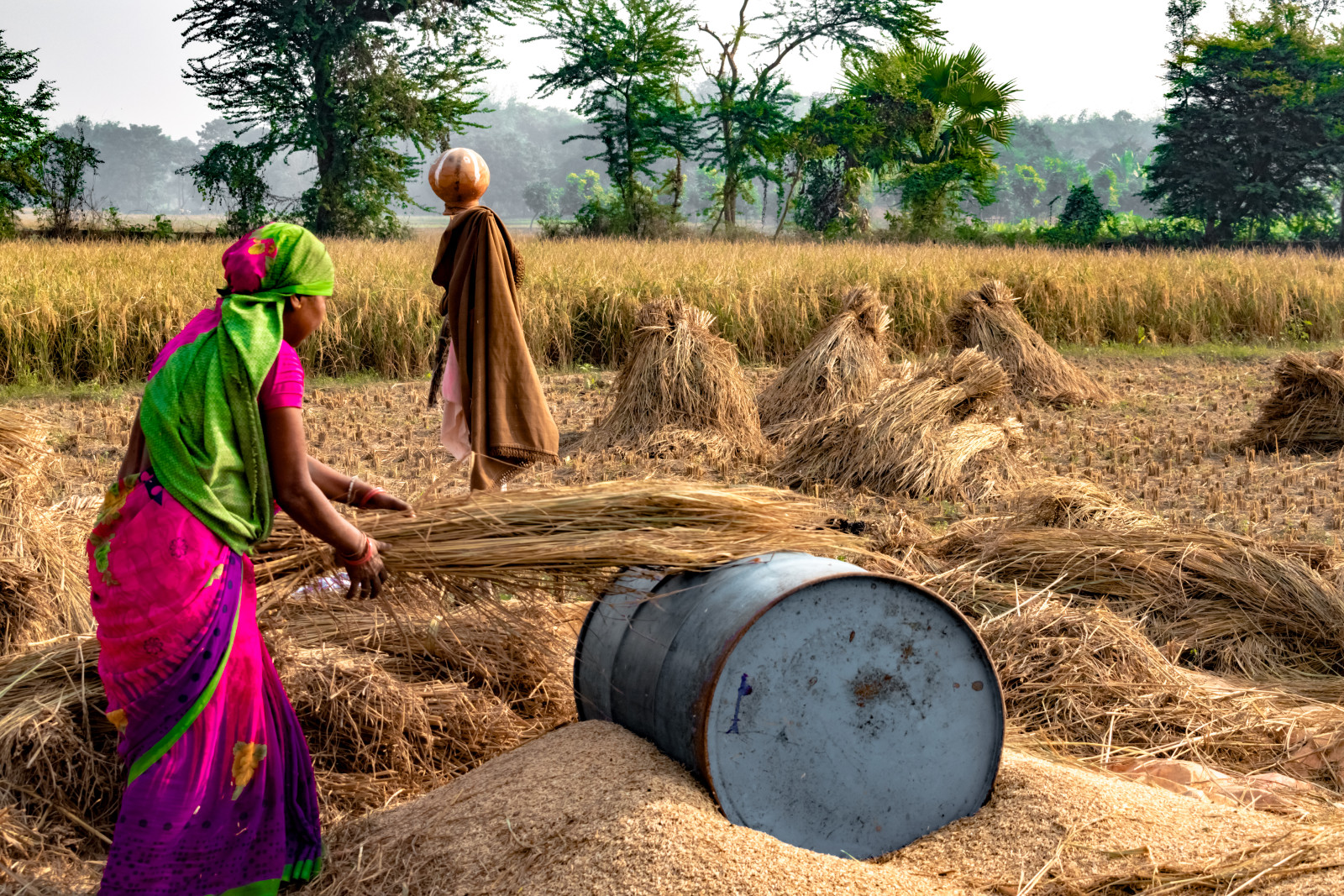
Egypt is in talks to export fertilizer and other products to India in exchange for the 500k tons of Indian wheat we’ve been hoping to secure, Supply Minister Ali El Moselhy told Bloomberg. The minister discussed the potential arrangement with the Indian ambassador to Egypt last week, he told the business newswire on the sidelines of the Islamic Development Bank’s annual meetings in Sharm El Sheikh.
The 500k-ton purchase has been in question since last month when India moved to ban wheat exports to all but the most vulnerable countries in a bid to tame local inflation and protect supply following a weaker-than-expected harvest. Egypt has been in talks with New Delhi to get an exemption from the restrictions, and Moselhy has insisted that the purchase will not be impacted despite the fact that Egypt had not inked contracts ahead of the ban.
Fertilizer might sweeten the deal: India’s agriculture sector is heavily reliant on fertilizer imports and has been searching for new suppliers since Russia’s invasion of Ukraine. Russia and Belarus supply all of the country’s potash, leaving it vulnerable to the effects of Western sanctions on Russia. As one of the largest exporters of nitrogen-based fertilizers, Egypt has been receiving attention in recent weeks from the likes of Brazil, which has been facing a shortage of the commodity for months.
News of a longer-term pact comes as our first Indian wheat shipment landed yesterday: Egypt received its first wheat shipment from India, Ahmed El Attar, head of the Agriculture Ministry’s quarantine authority, told Kelma Akhira’s Lamis El Hadidi (watch, runtime: 6:55). This is the same shipment that had already passed inspection by officials sent out to India in May, El Attar said. Reports at the time suggested the purchase was in the 55k ton range.
No loosening of quality standards for grain imports? Reports that Egypt has loosened any of its wheat quality rules in a bid to diversify supply are “completely untrue,” Ahmed El Attar, head of Agriculture Ministry’s quarantine authority, told Sky News Arabia. Reuters had previously reported that Egypt would allow wheat imports with a moisture content of up to 14% — up from 13.5% — for a year due to supply restrictions in the global market.
(Reminder: Ergot is a particularly touchy subject for the Agriculture Ministry — the saga has been dragging on for at least six years and seems to raise its head at least once every 12 months. The fungus grows on cereal grasses — particularly rye, but also wheat — and in the right dose can cause “ergotism,” a particularly nasty constellation of symptoms including gangrene of the hands and epilleptic-like convulsions and hallucinations.)
Definitely not eating Turkey’s leftovers: Authorities have declined a 55k shipment of Indian wheat that was offered to us after it was turned away from a Turkish port for high levels of ergot fungus, El Attar added. “The shipment will not be accepted until it’s proven to be completely ergot-free,” he said.
MEANWHILE- We’re still making progress on the local harvest: Egypt has procured around 3.5 mn tons of its 6mn-ton purchase target from local farmers since the start of the harvest season, a Supply Minister official told Reuters yesterday.
BACKGROUND- As the world’s largest importer of wheat, Egypt is among the countries most affected by the grain shortage triggered by the Russia-Ukraine war. We usually source upwards of 80% of our wheat imports from the two countries and are facing at least an additional EGP 15 bn burden on this year’s fiscal budget as a result of spiraling grain prices.
BLACK SEA BREAKTHROUGH?
Some 20 mn tons of grain and seeds stuck in Ukraine could soon be unlocked under an agreement being negotiated by Turkey, Russia, Ukraine, and the UN to set up a safe corridor in the Black Sea, according to Reuters. The plan would see the Turkish navy escort ships carrying grain out of Ukrainian ports and through the Black Sea, and a UN-run center set up in Istanbul to monitor the shipments.
Look for the topic to make headlines later this week when Russian Foreign Minister Sergei Lavrov visits Turkey.
M&A WATCH
Lekela could be about to get Egyptian + Emirati owners
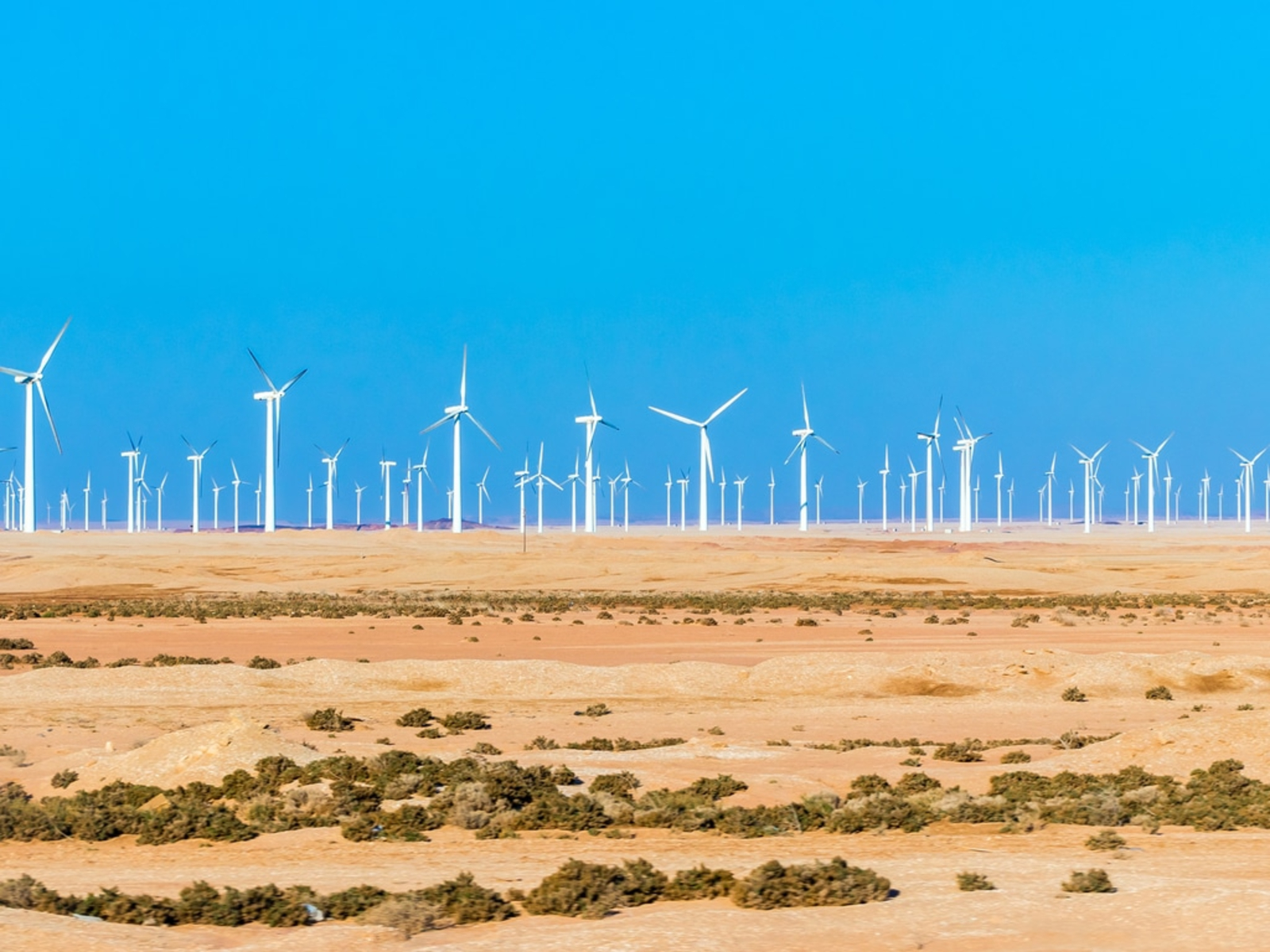
Infinity + Masdar to take majority stake in Lekela? Renewable energy player Infinity and Emirati firm Masdar are close to acquiring Actis’ majority stake in Lekela Power in a transaction that could be worth almost USD 1 bn, Reuters reports, citing three sources it says are familiar with the matter. Our friends at Infinity declined to comment when we reached out yesterday. Lekela and Actis did not immediately return calls asking for comment.
Actis’ 60% stake in Lekela has been in high demand: South African mining firm Exxaro, Chinese state fund CNIC and African Infrastructure Investment Managers — a unit of pan-African financial services outfit Old Mutual — were reported to be bidding for the private equity firm’s stake in February. CDC Group’s Globeleq and Chinese oil and gas giant Sinopec were also in the running, the newswire reported yesterday.
Lekela has a presence in Egypt, and operates the 250 MW wind farm in West Bakr which went live in November. The company has more than 1 GW of wind plants in its portfolio, across Egypt, South Africa and Senegal, and is currently developing a 225 MW project in Ghana.
Masdar has a footprint in Egypt, currently operating a number of smaller-scale solar projects around the country. The Mubadala-owned company recently signed a MoU alongside Hassan Allam Utilities to establish green hydrogen plants with a combined capacity of up to 480k tons a year.
We could hear something in the coming weeks: The acquisition is currently awaiting regulatory approvals and is set to be announced within the coming weeks, sources told Reuters.
Lekela isn’t the only renewables player Actis is looking to exit: Actis is searching for a buyer for its stake in Africa-focused renewables firm BioTherm Energy (BTE) Renewables with the door for nonbinding offers closing this week, sources tell Reuters. The company has over 400 MW of solar and wind plants in Kenya and South Africa.
INVESTMENT WATCH
Al Futtaim could invest up to USD 1 bn more in Egypt by 2025
Al Futtaim could invest up to USD 1 bn in Egypt: Emirati conglomerate Al Futtaim Group is looking to invest between USD 700 mn and USD 1 bn in the Egyptian market over the next three years, CEO Omar Abdullah Al Futtaim told Prime Minister Moustafa Madbouly in a meeting Thursday, according to a cabinet statement.
Al Futtaim says his group is serving as a pathfinder for foreign investors looking to come here: Al Futtaim Group is looking to partner with global firms in Egypt and is working with the Madbouly government to convince more of its international partners to invest here — particularly in our industrial sector, Al Futtaim said. He said he was optimistic about the new partnership with the UAE and Jordan that is set to channel finance into new large-scale industrial projects, under which Abu Dhabi sovereign wealth fund ADQ will invest USD 10 bn.
Privatization strategy coming soon: The government is still discussing the details of its state ownership policy and will publish the final document soon, Madbouly said. Under plans to attract USD 40 bn in fresh investment over the next four years, the state is putting together a roadmap to withdraw from certain sectors of the economy and sell stakes in state-owned firms to private companies. It was originally due to publish the final policy document at the end of May.
A MESSAGE FROM
Moharram & Partners for Public Affairs and Strategic Communications (M&P) is the “business to government (B2G) meetings partner” at #AfricaHealthExcon2022
To schedule bilateral meetings / consultation sessions with senior decision makers and government officials on the sidelines of the conference, please email: exconb2g@moharram-partners.com, or learn more here.
TELECOMS
Etisalat, TE close infrastructure agreements worth EGP 17 bn
Etisalat gets an infrastructure boost from Telecom Egypt: Our friends at Etisalat Misr have signed six agreements worth EGP 17 bn with Telecom Egypt (TE) to expand its transmission and fiber optic infrastructure, TE said in a statement Thursday. The main event was the inking of an EGP 12.5 bn 10-year transmission agreement, which will help Etisalat expand its network, TE said.
More on the agreements: TE also agreed to extend fiber optic connections to Etisalat’s mobile towers and amended the national roaming agreement TE signed with Etisalat in 2017 to allow TE more access to Etisalat’s service infrastructure. The two also agreed to work on a more “flexible” mechanism to continue to allow TE to use Etisalat’s network after the agreement expires by the end of the year.
TOURISM
Egypt accounts for 25% of new hotels planned in Africa

Egypt has the deepest pipeline of hotel developments in Africa, according to the latest survey of 42 African developers by W Hospitality Group. As of 1Q 2022, there were 85 hotels containing almost 21.3k rooms under development here — accounting for more than 25% of all new hotels planned in Africa and putting us comfortably above second-placed Morocco, where 50 new hotels are planned.
Recent years have seen a boom in new projects: Construction is yet to begin on almost three-quarters of the hotels planned in Egypt, reflecting a “young” pipeline of projects. Twenty hotels with around 5.3k rooms were signed off on in 2021 alone. In contrast, most developments in other countries making up the top 10 are under construction, suggesting fewer new signings over the past two or three years.
Riding out the storm: The spate of activity in Egypt has bucked the trend seen in many other African nations, where investment has dropped off due to the covid-19 pandemic and falling appetite for some of the continent’s major markets. Egypt’s tourism industry has slowly recovered from the pandemic over the past 18 months and the government now expects revenues of up to USD 12 bn this fiscal year, up from just USD 4.9 bn last year.
ENTERPRISE ON THE ROAD
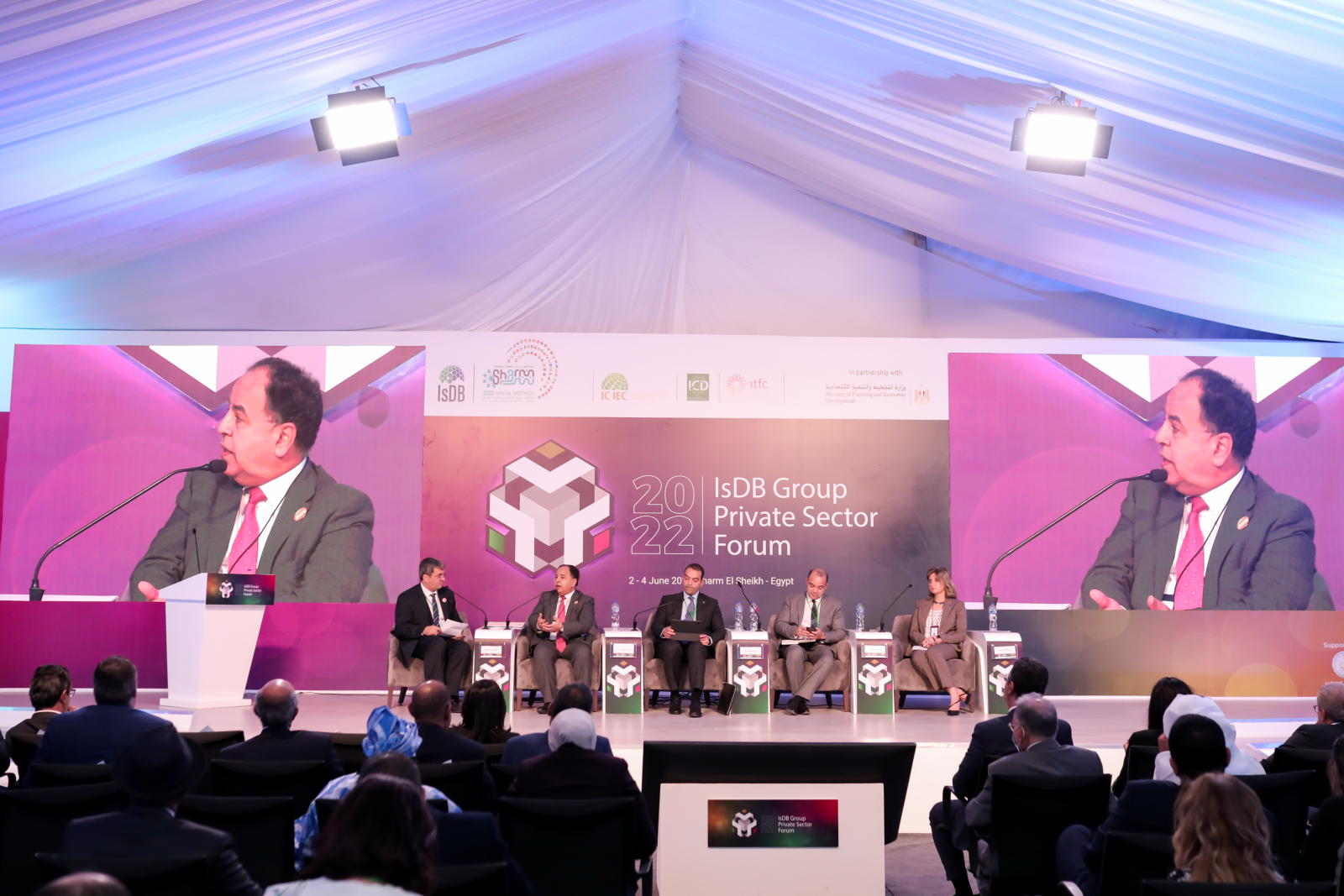
“Talk is cheap,” speakers at IsDB annual meetings tell developed nations: It’s no secret that COP26 disappointed many — particularly in developing and emerging markets. Pledges for climate change financing were not met, and half-measure agreements on climate change action went unfulfilled — not to mention a spate of what activists allege is greenwashing by private sector players. In short, it seems that developed countries have sold us a bag of goods.
This disappointment has clearly boiled over into anger, with policymakers at the IsDB annual meeting in Sharm El Sheikh not holding back their frustration at the lack of action and broken promises. None were more vocal than Finance Minister Mohamed Maait and Mahmoud Mohieldin, the senior World Bank official who is now the UN climate change high-level champion for COP27.
Foreign investors and funding “partners” not putting their money where their mouths are: “We were promised cheaper financing and long tenors if the financing would go towards green funding…I’m sorry to say, this is just talk,” Finance Minister Mohamed Maait said at a panel discussion on catalyzing growth through green finance — to thunderous applause from the audience. In the perennial debate over supply and demand for financing, Maait said: “I went to you with demand, but there was no supply.” When Egypt went to global markets for the region’s first green bond issuance, investors didn’t only push for higher interest rates, but also peddled advisers, consultants, and auditors, raising the costs of borrowing even further, he added.
Even DFIs weren’t all that much better: Whenever Egypt requested debt service alleviation — a widely promoted policy point — the answer was “we’ll try,” Maait said. “I find myself asking: Is this another debt trap?” “At this point, it would be cheaper for me to go for a more traditional Eurobond issuance,” he said.
EGX boss Mohamed Farid said at the same panel that the supply of climate finance has to come first if we want to move the needle.
It’s more than just a problem of financing: Climate change metrics and targets have become complacent to the point of being harmful, Mohieldin stressed at a separate panel. Some USD 100 bn in financing pledges have gone unfulfilled, despite this target being very generous. The most conservative estimates put the cost of a just green transition at USD 3.5-5 tn a year. “We’re talking about drops in the ocean,” he said. “I would sit down with some minister from the continent and he’d tell me how 30% of his annual budget would be needed to achieve one action item on climate change,” he said. “These metrics must be revised by 2025,” he stressed.
He also criticized greenwashing practices — and not just by the private sector. “Even when I hear that some country raised USD multi-mns for climate financing, if it does not come with a comprehensive strategy, this is simply just a transaction,” he said.
This is a talking point that the Madbouly government is warming to: The Planning Ministry has moved away from focusing on specific projects to policies and national strategies, said Planning Minister Hala El Said at a separate panel.
And how about we all agree on a set of ESG and climate change standards that developed countries and emerging markets can work with — a point stressed by Farid.
This debate about mitigation vs adaptation and who should fund what was a recurring theme throughout the meetings. The general consensus was that governments should focus on adaptation and leave mitigation to the private sector, which comes with innovation and technology. And even then, developing countries shouldn’t have to borrow for adaptation, Mohieldin stressed.
Unfortunately, DFIs aren’t much help here either: The Paris climate summit had recommended that funding towards adaptation and mitigation should be split 50/50. “Today, we see that multilateral institutions have been allocating 20% of their funding towards adaptation, while 80% has been going towards mitigation,” he said.
Concessional financing and especially grants were widely called for at the meetings, including from the likes of the head of FinMin’s PPP unit Atter Hannoura and Sovereign Fund of Egypt head Ayman Soliman. Soliman did note, however, that grants aren’t the solution to everything — the private sector has to buy in, he said.
MOVES
Orascom Development has appointed Mohamed Amer (Linkedin) as the CEO of its flagship El Gouna town, according to a statement (pdf). Amer has over 20 years of experience with Xerox, most recently as VP & regional general manager for the company’s operations in the Middle East and Africa.
LAST NIGHT’S TALK SHOWS
Bread and the grain used to make it led the conversation on last night’s airwaves.
Gov’t gets tough on local farmers who don’t meet minimum quotas: Supply Minister Ali El Moselhy has directed governorates to draw up an inventory of land harvested so far, to make sure farmers are meeting requirements to sell the state at least 12 ardebs of higher-quality wheat per feddan during the season. Farmers who don’t meet the quota are at risk of criminal proceedings and will be fined around EGP 1.7k per ardeb of undelivered wheat, according to the directive — double the price the state would have bought it for. Ala Mas’ouleety’s Ahmed Moussa took a close look at the directive (watch, runtime: 3:34).
Bread subsidies aren’t changing — but beneficiaries can now get an advance on their loaves: The bread ration is still five loaves per day — but under a Supply Ministry decision, citizens can now receive up to three days’ worth of loaves in advance. The move saves citizens from having to go to bakeries every day, Supply Ministry undersecretary in Alexandria Mohamed Saadallah told Kelma Akhira’s Lamis El Hadidi (watch, runtime: 7:35).
Personal Status Act … take two: The committee that President Abdel Fattah El Sisi has directed be set up to draft a new version of the Personal Status Act will be comprised of both male and female judges specialized in personal status and family law, sources told Kelma Akhira’s El Hadidi (watch, runtime: 4:56). The committee’s line-up is set to be announced today, El Hadidi added. The story also got coverage from Masa’a DMC (watch, runtime: 12:22), Al Hayah Al Youm (watch, runtime: 5:14) and Ala Mas’ouleety (watch, runtime: 2:15).
BACKGROUND: El Sisi in May urged the government, lawmakers and Al Azhar to draft balanced and fair legislation as soon as possible. Controversial amendments to a previous bill, which critics argued would curb women’s rights and legal protections, was shelved by the House last year after backlash.
ALSO ON OUR RADAR
One step closer to the Dabaa nuclear plant: Russian state nuclear company Rosatom has started manufacturing equipment for the 4.8 GW Dabaa nuclear power plant, it said in a statement. Rosatom said in January that it expects to be able to begin construction this summer after covid-related delays pushed the project back two years, though as far as we’re aware it still hasn’t received the permits it needs to begin.
PLANET FINANCE
Borouge shares pop in trading debut: Abu Dhabi-based petrochemicals firm Borouge’s shares jumped as much as 24% in its trading debut on Friday after raising USD 2 bn to become the ADX’s biggest-ever IPO. Shares hit an intraday high of AED 3.04 from its AED 2.45 IPO price before falling back slightly to close at AED 3.00. Borouge — a joint venture between the Abu Dhabi National Oil Company (Adnoc) and Austrian chemicals firm Borealis — listed 3 bn shares on the exchange, handing the company a USD 20 bn valuation. Our friends at EFG Hermes were joint bookrunners (pdf) on the transaction.
A record first half for Gulf IPOs: Gulf IPOs are on course for a record first half as surging oil prices and foreign inflows protect the energy-rich region from the turbulence that has threatened listing in other parts of the world.
It looks like the global chip shortage won’t be easing anytime soon: Moscow has curtailed until the end of the year exports to “unfriendly countries” of key noble gases used to make semiconductors — of which Russia accounts for 30% of global supply, Reuters reports.
|
|
EGX30 |
10,008 |
-0.8% (YTD: -16.3%) |
|
|
USD (CBE) |
Buy 18.60 |
Sell 18.68 |
|
|
USD at CIB |
Buy 18.62 |
Sell 18.68 |
|
|
Interest rates CBE |
11.25% deposit |
12.25% lending |
|
|
Tadawul |
12,605 |
-1.3% (YTD: +11.7%) |
|
|
ADX |
9,837 |
-0.2% (YTD: +15.9%) |
|
|
DFM |
3,387 |
-0.3% (YTD: +6.0%) |
|
|
S&P 500 |
4,109 |
-1.6% (YTD: -13.8%) |
|
|
FTSE 100 |
7,533 |
-1.0% (YTD: +2.0%) |
|
|
Euro Stoxx 50 |
3,784 |
-0.3% (YTD: -12.0%) |
|
|
Brent crude |
USD 119.72 |
+1.8% |
|
|
Natural gas (Nymex) |
USD 8.52 |
+0.5% |
|
|
Gold |
USD 1,850.20 |
-1.1% |
|
|
BTC |
USD 29,752 |
+0.6% (YTD: -35.3%) |
THE CLOSING BELL-
The EGX30 fell 0.8% at Thursday’s close on turnover of EGP 447 mn (47% below the 90-day average). Local investors were net buyers. The index is down 16.3% YTD.
In the green: Ibnsina Pharma (+7.1%), Madinet Nasr Housing (+6.3%) and Palm Hills Development (+3.6%).
In the red: CIB (-2.4%), EFG Hermes (-2.0%) and Oriental Weavers (-1.7%).
DIPLOMACY
One step closer to Tiran and Sanafir transfer: Israel is set to greenlight new arrangements which would allow for Egypt to transfer sovereignty of the Tiran and Sanafir islands to Saudi Arabia, a move that is reportedly being brokered by the US to encourage closer ties between Riyadh and Tel Aviv, the Jerusalem Post writes. Under the agreement, Israel will allow the multinational force currently stationed on the islands to relocate to Egyptian soil several kilometers away. In return, Saudi Arabia would allow Israeli airlines to use its airspace, the newspaper reports.
An official announcement could be coming at the beginning of next month when US President Joe Biden is expected to visit the region. Biden was originally supposed to be visiting Saudi Arabia and Israel at the end of June but has postponed the trip to next month for unknown reasons, NBC reported yesterday. Two Saudi government delegations are set to visit the US this month to pave the way for Biden’s visit, officials reportedly told Reuters.
ALSO IN DIPLOMACY-
Finance Minister Mohamed Maait talked investment with Qatar and Mauritania on the sidelines of the Islamic Development Bank’s meeting in Sharm El Sheik.
Did we meet Turkey’s Treasury and FInance Minister? Nureddin Nebati was in Sharm for the IsDB meetings and met with officials from Saudi, Qatar and the UAE. No word on whether he sat down with anyone from the Madbouly government.
CALENDAR
OUR CALENDAR APPEARS in two sections:
- Events with specific dates or months are right here up top
- Events happening in a quarter or other range of time with no specific date / month appear at the bottom of the calendar.
JUNE
5-7 June (Sunday-Tuesday): Africa Health ExCon, Al Manara International Conference Center, Egypt International Exhibitions Center, and the St. Regis Almasa Hotel, new administrative capital.
5 June (Sunday): GB Auto is hosting an extraordinary general assembly meeting (pdf).
7 June (Tuesday): Technology conference Tech Invest 4, Grand Nile Hotel, in Cairo.
9 June (Thursday): European Central Bank monetary policy meeting.
9 June (Thursday): Digital Transformation Summit, The Nile Ritz-Carlton, Cairo
14-15 June (Tuesday-Wednesday): Federal Reserve interest rate meeting.
15-18 June (Wednesday-Saturday): St. Petersburg International Economic Forum (SPIEF), St. Petersburg.
16 June (Thursday): EU-Egypt Sustainable Food Value Chain conference, Grand Nile Tower Hotel, Cairo.
16 June (Thursday): End of 2021-2022 academic year for public schools.
21-22 June (Tuesday-Wednesday): Aswan Forum for Sustainable Peace and Development, Cairo.
21-23 June (Tuesday-Thursday): Commonwealth Business Forum, Kigali, Rwanda.
23 June (Thursday): Central Bank of Egypt’s Monetary Policy Committee meeting.
26 June (Sunday): The deadline for private companies to pre-register ahead of bidding for the second phase of the PPP national project to establish and operate 1k language schools.
27 June-3 July (Monday-Sunday): World University Squash Championships, New Giza.
30 June (Thursday): June 30 Revolution Day, national holiday.
30 June (Thursday): Deadline for bids for National Democratic Party HQ redevelopment contract.
June: Egypt will launch a unified ticketing system for all means of transport at the Adly Mansour Interchange Station.
June: Polish President Andrzej Duda will visit Egypt to coordinate ways to ship Ukrainian wheat to Egypt amid the war in Ukraine.
JULY
July: A law governing ins. for seasonal contractors will come into effect.
July: Fuel pricing committee meets to decide quarterly fuel prices.
1 July (Friday): FY 2022-2023 begins.
1 July (Friday): Official rollout of e-receipt system begins.
8 July (Friday): Arafat Day.
9-13 July (Saturday-Wednesday): Eid Al Adha, national holiday.
21 July (Thursday): European Central Bank monetary policy meeting.
26-27 July (Tuesday-Wednesday): Federal Reserve interest rate meeting.
30 July (Saturday): Islamic New Year.
Late July – 14 August: 2Q2022 earnings season.
AUGUST
August: Work to extend the capacity of the Egypt-Sudan electricity interconnection to 600 MW to be completed.
18 August (Thursday): Central Bank of Egypt’s Monetary Policy Committee meeting.
SEPTEMBER
September: Egypt will display its first naval exhibition with the title Naval Power.
September: Central Bank of Egypt’s Innovation and Financial Technology Center to launch incubator for 25 fintech startups.
8 September (Thursday): European Central Bank monetary policy meeting.
18 September (Sunday): Deadline for brokerage firms, asset managers and financial advisors to register with the Egyptian Securities Federation.
20-21 September (Tuesday-Wednesday): Federal Reserve interest rate meeting.
22 September (Thursday): Central Bank of Egypt’s Monetary Policy Committee meeting.
26–27 September (Monday-Tuesday): The Africa Women Innovation and Entrepreneurship Forum (AWIEF) at the Cairo Marriott Hotel.
OCTOBER
October: Fuel pricing committee meets to decide quarterly fuel prices.
1 October (Saturday): Use of Nafeza becomes compulsory for air freight.
6 October (Thursday): Armed Forces Day, national holiday.
8 October (Saturday): Prophet Muhammad’s birthday, national holiday.
10-16 October (Monday-Sunday): World Bank and IMF annual meetings, Washington, DC, chaired by CBE Governor Tarek Amer
18-20 October(Tuesday-Thursday): Mediterranean Offshore Conference, Alexandria, Egypt.
27 October (Thursday): European Central Bank monetary policy meeting.
Late October – 14 November: 3Q2022 earnings season.
NOVEMBER
November: Cairo Water Week 2022.
1-2 November (Tuesday-Wednesday): Federal Reserve interest rate meeting.
3 November (Thursday): Central Bank of Egypt’s Monetary Policy Committee meeting.
3-5 November (Thursday-Saturday): Egypt Fashion Week.
4-6 November (Friday-Sunday): The Autotech auto exhibition kicks off at the Cairo International Exhibition and Convention Center.
7-18 November (Monday-Friday): Egypt will host COP27 in Sharm El Sheikh.
21 November-18 December (Monday-Sunday): 2022 Fifa World Cup, Qatar.
13-14 December (Tuesday-Wednesday): Federal Reserve interest rate meeting.
15 December (Thursday): European Central Bank monetary policy meeting.
DECEMBER
22 December (Thursday): Central Bank of Egypt’s Monetary Policy Committee meeting.
JANUARY 2023
January EGX-listed companies and non-bank lenders will submit ESG reports for the first time.
January: Fuel pricing committee meets to decide quarterly fuel prices.
MAY 2023
22-26 May (Monday-Friday): Egypt will host the African Development Bank (AfDB) annual meetings in Sharm El Sheikh.
EVENTS WITH NO SET DATE
2Q2022: The Sovereign Fund of Egypt will invest in two companies in the financial inclusion and non-banking financial services sectors.
End of 2Q2022: The Financial Regulatory Authority’s new Ins. Act should be approved.
End of 2Q2022: Door for bidding for the contract to redevelop the site of the former National Democratic Party HQ to close.
1H2022: Target date for IDH to close its acquisition of 50% of Islamabad Diagnostic Center.
1H2022: e-Finance’s digital healthcare service platform, eHealth, will launch its services.
1H2022: The government will respond to private companies’ bids to build desalination plants.
1H2022: Egypt’s second corporate green bond issuance expected to be announced.
End of 1H2022: Emirati industrial company M Glory Holding and the Military Production Ministry will begin the mass production of dual fuel pickup trucks that can run on natural gas.
2H2022: The inauguration of the Grand Egyptian Museum.
2H2022: IEF-IGU Ministerial Gas Forum, Egypt. Date + location TBA.
2H2022: The government will have vaccinated 70% of the population.
3Q2022: Ayady’s consumer financing arm, The Egyptian Company for Consumer Finance Services, to release its first financing product.
End of 2022: e-Aswaaq’s tourism platform will complete the roll out of its ticketing and online booking portal across Egypt.
2023: Egypt will host the Asian Infrastructure Investment Bank’s Annual Meeting of the Board of Governors in 2023.
**Note to readers: Some national holidays may appear twice above. Since 2020, Egypt has observed most mid-week holidays on Thursdays regardless of the day on which they fall and may also move those days to Sundays. We distinguish above between the actual holiday and its observance.
Enterprise is a daily publication of Enterprise Ventures LLC, an Egyptian limited liability company (commercial register 83594), and a subsidiary of Inktank Communications. Summaries are intended for guidance only and are provided on an as-is basis; kindly refer to the source article in its original language prior to undertaking any action. Neither Enterprise Ventures nor its staff assume any responsibility or liability for the accuracy of the information contained in this publication, whether in the form of summaries or analysis. © 2022 Enterprise Ventures LLC.
Enterprise is available without charge thanks to the generous support of HSBC Egypt (tax ID: 204-901-715), the leading corporate and retail lender in Egypt; EFG Hermes (tax ID: 200-178-385), the leading financial services corporation in frontier emerging markets; SODIC (tax ID: 212-168-002), a leading Egyptian real estate developer; SomaBay (tax ID: 204-903-300), our Red Sea holiday partner; Infinity (tax ID: 474-939-359), the ultimate way to power cities, industries, and homes directly from nature right here in Egypt; CIRA (tax ID: 200-069-608), the leading providers of K-12 and higher level education in Egypt; Orascom Construction (tax ID: 229-988-806), the leading construction and engineering company building infrastructure in Egypt and abroad; Moharram & Partners (tax ID: 616-112-459), the leading public policy and government affairs partner; Palm Hills Developments (tax ID: 432-737-014), a leading developer of commercial and residential properties; Mashreq (tax ID: 204-898-862), the MENA region’s leading homegrown personal and digital bank; Industrial Development Group (IDG) (tax ID:266-965-253), the leading builder of industrial parks in Egypt; Hassan Allam Properties (tax ID: 553-096-567), one of Egypt’s most prominent and leading builders; and Saleh, Barsoum & Abdel Aziz (tax ID: 220-002-827), the leading audit, tax and accounting firm in Egypt.
